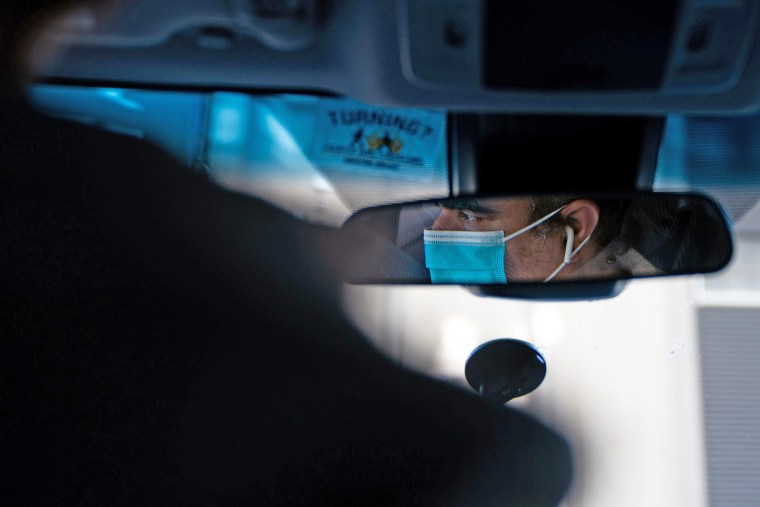Ride-hailing services Lyft and Uber said Thursday that they are partnering with the background screening company HireRight to share data on drivers accused of sexual assault to make sure they are banned on both platforms.
Other ride-hailing and delivery apps can sign on to the data-sharing system but only if they agree to abide by the same rules as Uber and Lyft and use the same program that Uber created in partnership with the National Sexual Violence Resource Center and the Urban Institute in 2018, Uber said.
“We want to share this information with each other and hopefully in the near future with other companies, so that our peers in this space can be informed and make decisions for their own platforms to keep those platforms safe," said Jennifer Brandenburger, head of policy development at Lyft.
Scott Berkowitz, president and founder of the nonprofit Rape, Abuse & Incest National Network, commended the companies for working together.
“Uber and Lyft have demonstrated thoughtful leadership with the Industry Sharing Safety Program," he said. "By putting aside competition, they are placing users first and building a safer rideshare community for all."
Uber and Lyft have been the subject of criticism and legal action over how they handled alleged assaults by drivers on their platforms. A 2019 complaint filed by 14 unnamed plaintiffs alleged that Lyft had hired drivers without performing ample background checks. In late 2019, Uber released its first report about sexual assaults connected to its service, which found it received 5,981 allegations of sexual assault between the years of 2017-18. However, the report faced criticism from the California Public Utilities Commission after Uber refused to turn over private data regarding information about the alleged victims. As a result, Lyft said it decided to halt the release of its own safety report because it said the commission's recent actions put the privacy of victims at risk.
In recent years, the companies have introduced a series of policies and in-app features meant to boost the safety of drivers and passengers. Uber's app now includes an emergency button, enhanced background checks and new technology that detects potential crashes or unexpected long stops during a trip. Lyft’s app offers contact protection, the option to share trip information with a friend and a “get emergency help” feature in which the security company ADT contacts law enforcement.
The companies said the data sharing arrangement will only be on the basis of deactivation. and information about the victim will not be shared on the secured database.
“We would share the basis of the deactivation, as well as identifying information about the driver just enough so that other companies can find that person on their platform, nothing else,” Tony West, chief legal officer at Uber, said.
To report a case of sexual assault, call the National Sexual Assault Telephone Hotline at 1-800-656-HOPE (4673).
